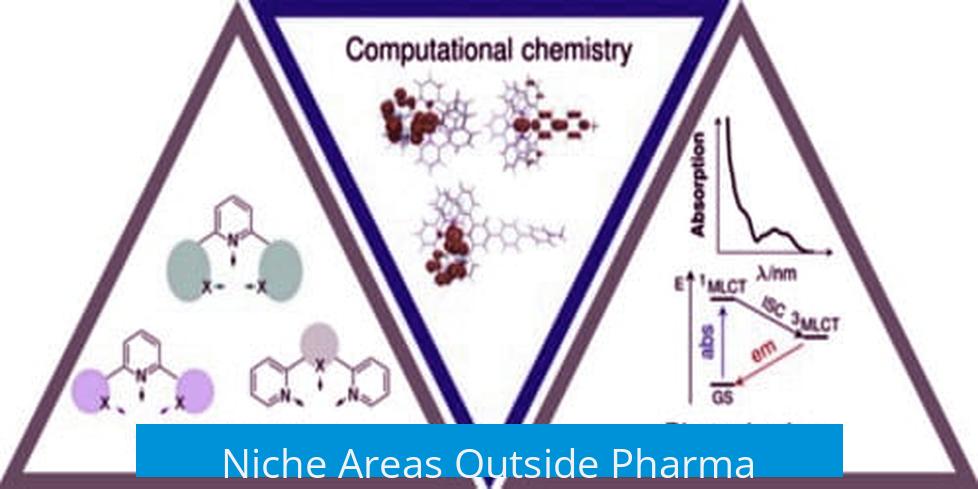Will Computational Chemistry Be a Good Idea?

Computational chemistry is a promising and evolving field with substantial career opportunities, especially in drug discovery and pharmaceutical industries. It demands strong theoretical knowledge, quantum mechanics, and programming skills. Despite limitations in accuracy, ongoing advancements in computational methods, machine learning, and quantum computing make it an increasingly valuable discipline in both academia and industry.
Career Prospects and Industry Demand
Demand in Pharma and Broader Industry
Computational chemistry plays a significant role in drug discovery. Pharmaceutical companies increasingly rely on computational chemists to complement laboratory research. These experts help optimize resources by modeling molecular interactions and predicting outcomes.
Modeling techniques combine principles from molecular mechanics with large-scale data analysis. This integration enhances drug design efficiency and reduces cost. Industry-wide, the demand for computational chemists is growing faster than traditional bench research roles.
Niche Areas Outside Pharma

Outside drug discovery, computational chemistry applications can be niche. Some sectors appreciate the specialty, but opportunities might be limited. The strongest demand remains where it intersects with large data and molecular modeling, notably pharmaceuticals and biotechnology.
Academic Appeal
Computational chemistry offers exciting academic prospects. Researchers value the combination of theoretical chemistry with computer science. Academic positions often allow exploration of fundamental chemical problems and development of new methods.
Skills and Knowledge Required
Technical Foundations
A solid understanding of quantum mechanics underpins most computational chemistry work. Knowledge of theoretical chemistry helps tackle complex chemical systems and interpret computational results accurately. This background varies in difficulty depending on a person’s prior training, such as chemical engineering or pure chemistry.
Programming Skills
Coding is essential. Proficiency in scripting languages, including Bash and Fortran, facilitates workflow automation and software customization. These skills, while not always glamorous, are vital.
Machine learning integration into chemistry demands good coding ability. Programming becomes increasingly important as algorithms evolve to process chemical data and predict properties reliably.
Nature of Computational Chemistry Work
Typical Roles and Responsibilities
- Develop, maintain, and optimize computational codes that apply quantum and semiclassical theories to chemical systems.
- Collaborate with experimental scientists to interpret findings, validate hypotheses, or predict reaction pathways.
- Use machine learning models to forecast molecular behaviors and discover materials with novel properties.
Challenges and Limitations
All computational methods approximate reality. The Schrödinger equation cannot be solved exactly for complex systems. Even extensive computational efforts can sometimes produce inaccurate predictions.
Much research focuses on improving these approximations and making computations more resource-efficient. This constant refinement ensures better simulation fidelity over time.
Growth and Future Directions
Computational chemistry is poised for growth as computational accuracy improves and new technologies emerge. Integration with machine learning and quantum computing drives innovation and expands research capabilities.
These advances promise more reliable predictive tools and broaden the field’s applicability to diverse chemical problems.
Subjective Views and Challenges
Distance from Experimental Reality
Some practitioners find computational chemistry too detached from physical experiments. Simulations may not always reflect real-life chemical behavior. This disconnect can limit immediate practical applications and pose challenges in research validation.
Utility and Versatility
Conversely, many respect computational chemistry’s utility and versatility. It applies to various research areas, including psychedelic drug studies. Running calculations is often useful for hypothesis testing and mechanistic insights.
Research Opportunities and Recognition
With backgrounds in computer science, researchers find expanded opportunities. However, concerns exist regarding whether computational work receives equal respect compared to experimental contributions. Publication practices often favor collaborative projects that combine both approaches.
Summary and Overall Considerations
- Computational chemistry is in demand, especially in pharmaceutical drug discovery, acting as a bridge between experimental data and theoretical models.
- Success in the field requires strong theoretical chemistry knowledge, quantum mechanics, and programming skills including scripting and machine learning.
- The methods used are inherently approximate, and not all simulations perfectly match experimental outcomes, posing challenges in some contexts.
- Academic opportunities are robust, with exciting research advances linked to emerging computational technologies.
- Industry needs are growing, fuelled by enhanced computational power and integration of AI and quantum computing.
- Personal preferences vary: some appreciate the computational approach’s abstraction, while others prefer direct experimental engagement.
Key Takeaways
- Computational chemistry is a viable and growing career path with strong ties to pharmaceutical research.
- It demands a rigorous foundation in theoretical chemistry and programming skills.
- Computational results are approximations, requiring careful interpretation and validation.
- Emerging tools like machine learning and quantum computing will shape the field’s future.
- Opportunities exist both in academia and industry, though roles outside drug discovery may be more specialized.
- Respect and recognition in research can depend on collaboration between computational and experimental scientists.
1. What industries have the highest demand for computational chemists?
The pharmaceutical industry leads demand, especially for drug discovery roles. Pharma companies use computational chemistry to optimize experiments and speed up research.
2. Are programming skills essential in computational chemistry careers?
Yes, programming is crucial. Skills in scripting and coding, even in less popular languages like Bash or Fortran, help manage simulations. Machine learning knowledge adds value.
3. How reliable are computational chemistry results compared to experiments?
Computational methods use approximations and can be inaccurate. They guide research but don’t always match real experimental outcomes perfectly.
4. Is computational chemistry suitable for an academic career?
Computational chemistry is appealing in academia. It offers extensive research opportunities and allows you to explore theoretical and applied chemistry deeply.
5. What challenges might one face in computational chemistry?
Work can feel detached from experimental reality. Additionally, gaining recognition through publications can be harder unless collaborating with experimentalists.
6. How is the field of computational chemistry evolving?
It grows with advances in computer simulations. Emerging trends include machine learning and quantum computing integration, which expand research capabilities.





Leave a Comment